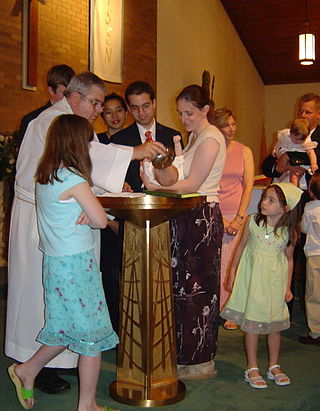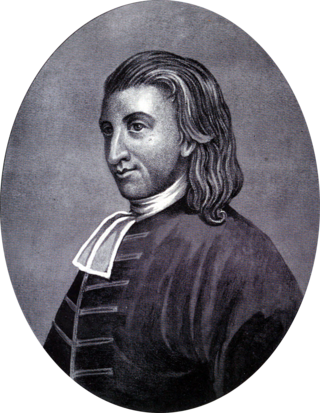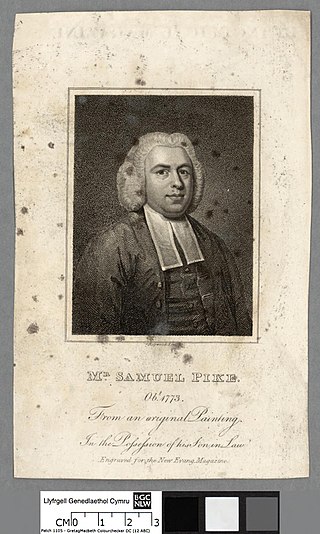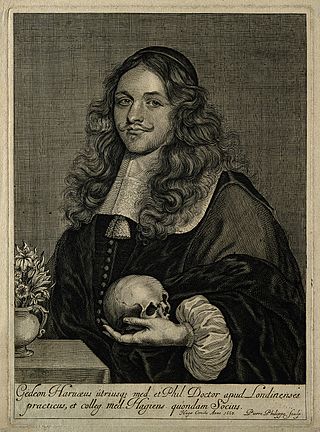This article relies largely or entirely on a single source .(December 2010) |
Hercules Collins (1647-1702), was an English Baptist minister, author of a revision of the Heidelberg Catechism called the Orthodox Catechism.
This article relies largely or entirely on a single source .(December 2010) |
Hercules Collins (1647-1702), was an English Baptist minister, author of a revision of the Heidelberg Catechism called the Orthodox Catechism.
Collins had little education, but was religious at an early age. He appears to have officiated to a congregation at Wapping, and at one period he was imprisoned in Newgate Prison. He died on 4 October 1702, and his funeral sermon, by the Rev. John Piggott, was printed in the following year.
His published material begins with An Orthodox Catechism (1680), an edited version of the 16th century Heidelberg Catechism. Collins revised the section on baptism, as well as making a number of stylistic changes; he also added the text of the Nicene Creed and Athanasian Creed. In the appendix Collins argues for the biblical duty of congregational singing.[ citation needed ]
Over the next twenty-two years Collins produced eleven more works, mainly on issues of separation from the Church of England, and believer's baptism versus infant baptism. Other works come from his time in Newgate Prison during 1684. One of these was Counsel for the Living Occasioned from the Dead and was written on the death of two of his fellow prisoners; it contains pastoral instruction to those who were likewise experiencing persecution. The other, A Voice from Prison, was alternatively titled: Meditations on Revelation 3:11 Tending to the Establishment of God’s Little Flock, in An Hour of Temptation.[ citation needed ]
A final work was The Temple Repair'd. It includes instruction on preparing and preaching sermons for those in the ministry.[ citation needed ]
Besides some single sermons, he wrote the following works, some of which occasioned a good deal of controversy:
His collected Works are presently being edited by Mark Smith and Reagan Marsh for Hesed & Emet Publishers (H&E) under the oversight of Dr. Michael A. G. Haykin. Marsh is also writing a postgraduate thesis on Collins's pastoral theology under Dr. Thomas J. Nettles.

Infant baptism is the practice of baptizing infants or young children. Infant baptism is also called christening by some faith traditions.

A catechism is a summary or exposition of doctrine and serves as a learning introduction to the Sacraments traditionally used in catechesis, or Christian religious teaching of children and adult converts. Catechisms are doctrinal manuals – often in the form of questions followed by answers to be memorised – a format that has been used in non-religious or secular contexts as well. According to Norman DeWitt, the early Christians appropriated this practice from the Epicureans, a school whose founder Epicurus had instructed to keep summaries of the teachings for easy learning. The term catechumen refers to the designated recipient of the catechetical work or instruction. In the Catholic Church, catechumens are those who are preparing to receive the Sacrament of Baptism. Traditionally, they would be placed separately during Holy Mass from those who had been baptized, and would be dismissed from the liturgical assembly before the Profession of Faith and General Intercessions.

The Heidelberg Catechism (1563), one of the Three Forms of Unity, is a Protestant confessional document taking the form of a series of questions and answers, for use in teaching Calvinist Christian doctrine. It was published in 1563 in Heidelberg, Germany. Its original title translates to Catechism, or Christian Instruction, according to the Usages of the Churches and Schools of the Electoral Palatinate. Commissioned by the prince-elector of the Electoral Palatinate, it is sometimes referred to as the "Palatinate Catechism." It has been translated into many languages and is regarded as one of the most influential of the Reformed catechisms.

Thomas Boston was a Scottish Presbyterian church leader, theologian and philosopher. Boston was successively schoolmaster at Glencairn, and minister of Simprin in Berwickshire, and Ettrick in Selkirkshire. In addition to his best-known work, Human Nature in Its Fourfold State, one of the religious classics of Scotland, he wrote an original little book, The Crook in the Lot, and a learned treatise on the Hebrew points. He also took a leading part in the Courts of the Church in what was known as the "Marrow Controversy," regarding the merits of an English work, The Marrow of Modern Divinity, which he defended against the attacks of the "Moderate" party in the Church. Boston, if unduly introspective, was a man of singular piety and amiability. His autobiography is an interesting record of Scottish life, full of sincerity and tenderness, and not devoid of humorous touches, intentional and otherwise.
William Burkitt was a biblical expositor, educational pioneer, rector of Milden, Suffolk, and vicar and lecturer of Dedham, Essex, in England.

Samuel Heinrich Froehlich (1803–1857) was an Anabaptist evangelist responsible for organizing the Evangelical Baptist Church in Western Europe, which eventually spread to become known as the Nazarenes of Eastern Europe and the Apostolic Christian Church in the United States, Mexico, Argentina and Canada. Froehlich, a young seminary student in Switzerland, experienced a dramatic conversion, causing him to come into conflict with the state-church. He was excommunicated in the aftermath of his refusal to submit to an order that required the Heidelberg Catechism to be replaced by a new rationalistic catechism. He had sympathies with the Mennonite faith, but soon became convinced they were in a lukewarm state. Some of the Reformed and Mennonite persuasions followed Froehlich and were soon known as "Neu-Taufer". They later adopted the official name of Evangelical Baptist Church.

Catechesis is basic Christian religious education of children and adults, often from a catechism book. It started as education of converts to Christianity, but as the religion became institutionalized, catechesis was used for education of members who had been baptized as infants. As defined in the Catechism of the Catholic Church, paragraph 5 :
Catechesis is an education in the faith of children, young people and adults which includes especially the teaching of Christian doctrine imparted, generally speaking, in an organic and systematic way, with a view to initiating the hearers into the fullness of Christian life.
Stephen Addington D.D. was a scholarly English dissenting clergyman and teacher.

William Winstanley was an English poet and compiler of biographies.

William Kiffin (1616–1701), sometimes spelled William Kiffen, was a seventeenth-century English Baptist minister. He was also a successful merchant in the woollen trade.
Robert Pugh (1610–1679) was a Welsh Jesuit priest and controversialist.

Samuel Pike (1717?–1773) was a British clergyman and a member of a religious movement known as Sandemanians.

John Edwards (1637–1716) was an English Calvinistic divine.
Edward Barber, was an English Baptist minister.
Thomas Gaspey was an English novelist and journalist.
John Collins was an English Independent minister.
Edward Cobden was a British divine, poet, and Archdeacon of London, from 1742 to 1764.
Basil Kennett was a Church of England cleric who served as the first chaplain to the British Factory at Leghorn. An academic, writer and translator, Kennett was elected president of Corpus Christi College, Oxford, serving for a short time before his early death. His 1696 Romæ Antiquæ Notitia, or the Antiquities of Rome was considered the subject's standard handbook for a century.
Samuel Cradock, B.D. (1621?–1706) was a nonconformist tutor, who was born about 1621. He was an elder brother of Zachary Cradock.

Gideon Harvey was a Dutch-English physician.
Attribution
![]() This article incorporates text from a publication now in the public domain : Stephen, Leslie, ed. (1887). "Collins, Hercules". Dictionary of National Biography . Vol. 11. London: Smith, Elder & Co.}}
This article incorporates text from a publication now in the public domain : Stephen, Leslie, ed. (1887). "Collins, Hercules". Dictionary of National Biography . Vol. 11. London: Smith, Elder & Co.}}